LA REFORMA EDUCATIVA COMO REFORMA LABORAL
Por: Miguel Andrés Brenner
Mayo de 2017
Buenos Aires, Argentina
El propósito de este trabajo es mostrar cómo, en última instancia, bajo la fachada de una reforma pedagógica subyace una reforma laboral dentro de los cánones del capitalismo neoliberal.
Desde hace varias décadas hacia atrás, en nuestra América Latina, múltiples reformas educativas atraviesan sus sistemas educativos. En Argentina, desde la recuperación de la democracia, al menos tres, la de la década del noventa, la de la primer década del nuevo milenio y la actual. Dentro de las dos primeras, a su vez, por la descentralización/segmentación del sistema escuela, en cada una de ellas aparecen varianzas según las jurisdicciones, o sea, la reforma de la reforma. La camada docente se encuentra “descreída” de las mismas, lo que resulta grave. Si una reforma no se hace con los docentes, se hace sobre ellos, y así puede preverse un nuevo fracaso. A veces, desde el poder político, se presenta como ejemplo la bondad del modelo finlandés; más allá de las discusiones que merece, resulta oportuno señalar que en Finlandia, desde principios de la década del noventa del siglo XX hasta el presente, existe una política de Estado en materia de educación, independientemente de los avatares político partidarios y el poder formal de su democracia. En nuestra Argentina, cada gobierno tiene su propia reforma, y aún más, coexiste la reforma de la reforma. La nueva que se nos anuncia, ya se encuentra prefigurada en los acuerdos del Consejo Federal de Educación, con la participación de los ministros de educación de todas las jurisdicciones. Así, a saber el Anexo de la Resolución 276/16 –febrero- llamada “Declaración de Purmamarca”[1]y el Anexo de la Resolución 285/16 – agosto- llamada “Argentina Enseña y Aprende. Plan Estratégico Nacional 2016-2026″[2]. Ambos documentos son desconocidos hasta la actualidad por la casi totalidad de los docentes, bajo la intencionalidad política de su no publicidad, aunque se declare lo contrario.
Se vislumbra en Argentina un “cambio”[3] para el sistema educativo desde las políticas nacionales, con una supuesta participación ciudadana desde una página web oficial, donde muy pocos acuden, o bien estos pocos resultan ser solamente un simulacro de participación. Entre tanto, las universidades, los sindicatos, las escuelas en los diferentes niveles educativos, al respecto, son “convidados de piedra” y no producen a fondo pronunciamiento público. En el mejor de los casos existe tardíamente alguna reacción, nada más. Es que las luchas pedagógico políticas tienden a ser más que nada “luchas por reacción”[4] y no “luchas por anticipación”.
Las luchas docentes pasan por la reacción, a veces tardías, y antes que nada se reducen al presupuesto y al salario. Mientras tanto, la neoderecha diseña “reformas educativas” que con apariencia se centran en lo pedagógico, aunque en última instancia constituyen una reforma administrativa, burocrático, laboral en el espíritu de la precarización o flexibilidad de todo tipo de empleo.
Mientras los docentes luchan por una escala salarial digna, la burocracia política en la conducción del gobierno prepara una reforma educativa laboral. Desde ninguna institución con poder (académico o sindical), que pretende diferenciarse del economicismo, se atiende a la cuestión de la “calidad educativa” con propuestas de lucha anticipatoria, término problemático por cuanto desde el bloque hegemónico se lo significa en el plexo de la economía de mercado, es decir, considerando el mejor estándar, que facilita la observación y medición de los productos en escala mundial, además de su comparación, con una apariencia de neutralidad valorativa, de objetividad y de criterios técnicos pertinentes. Desde ahí se pretende la “rendición de cuentas”, accountability, para la “toma de decisiones”, conceptos propios del “management” o administración de empresas o su gerenciamiento. Esos conceptos – calidad, educativa, observación, medición, objetividad, criterios técnicos, rendición de cuentas, toma de decisiones- marcan tendencia en el Plan Maestro[5], con la crucial importancia, en tal sentido, de la evaluación, sea en primer lugar a los estudiantes y más que nada a los docentes, signados como principales responsables del fracaso escolar, amén de sus consecuencias como reforma laboral considerando lo que se denomina “toma de decisiones”. Dicha reforma laboral, en particular, es referida al ingreso y permanencia en cargos/horas de clases de los docentes, además de establecer incentivos salariales por mérito individual, con lo que se desarma todo tipo de comunidad o todo tipo de fuerza sindical, pues la camada docente es reducida a átomos.
La “lucha por anticipación” significa la posibilidad de propuestas reales y efectivas, factibles, que permitan una “calidad educativa” con sentido popular y colectivo o comunitario.
El documento Plan Maestro[6], a elevarse en 2017 para su aprobación en la legislatura como ley nacional, modifica toda otra ley, o bien determinados articulados, que difiera del mismo. Por ejemplo: el Estatuto del Docente.
Su estructura es la siguiente:
- Presentación ante el Honorable Congreso de la Nación. 2 páginas
- Justificación/exposición de motivos. 2 páginas
- De forma para la sanción de la ley. 1 página
- Anexo I. Dimensiones y líneas de acción principales. 38 páginas
- Anexo II. Metas. 12 páginas
PRESENTACIÓN ANTE EL HONORABLE CONGRESO DE LA NACIÓN
Parte de dos supuestos fundamentales:
- Menciona el Artículo 2 de la Ley Nacional de Educación 26.206/2006: “la educación es un bien público y un derecho tanto social como personal, que deben ser garantizados por el Estado”.[7]
- La educación y sus productos principales, la información y el conocimiento son variables claves en el siglo XXI para la competitividad económica, la ciudadanía política y la equidad social. Lo que se propende es hacia una educación justa.
En última instancia, todo el texto Plan Maestro, considera como fundamento los derechos humanos y, en particular, la justicia educativa. El presente neoliberalismo coopta los “derechos humanos” para la justificación de sus discursos.
Finaliza el primer tramo señalando que el plan establece un sistema de evaluación y monitoreo y ejecución del plan, con la participación ciudadana, amén de realizar los ajustes necesarios. Cabe considerar que desde diciembre de 2015, en que asume el gobierno el frente político Cambiemos, en principio la información pública en materia de política educativa es muy sesgada, oscura y no fácilmente hallable. A su vez, el conocimiento y la discusión pública del Plan Maestro acontecen solamente para quien acude a la web en el sitio oficial desde abril de 2016, y durante mayo del mismo año. Es, también, un criterio de participación demasiado acotado, pues casi la totalidad de los interesados en las cuestiones pedagógicas no se informa normativamente a través de dicho medio-web. El Plan Maestro nace como una incógnita y es una incógnita. La práctica política de la participación es la que define el espíritu de la letra de la norma: no existe. Más aún, se solicita la “pronta sanción del presente proyecto de ley”. Por ende, la premura, la urgencia, hace a la pretendida institución de una “masa silenciosa” por negación de las instancias democráticas requeridas. Y a ello, importa agregar un curioso dato, de no menor importancia: es difícil acudir al documento ministerial mediante la web (google) si en el buscador se escribe “Plan Maestro”, pero se lo halla si se consigna en el mismo “Plan Maestro” + “diálogo.compromiso por la educación”, aparentando así el reforzamiento de la “incógnita” por su alentado desconocimiento.
JUSTIFICACIÓN, EXPOSICIÓN DE MOTIVOS
- La igualdad de oportunidades.
- Lograr una educación de calidad, centrada en los aprendizajes socialmente significativos.
- La reducción de la desigualdad y la erradicación de la pobreza.
Veamos la siguiente reflexión crítica:
- El concepto “igualdad de oportunidades” supone un individualismo meritocrático. Cada individuo se haría cargo de aprovechar una igualdad hipotetizada, fantaseada, puesto que en la realidad las injusticias sociales y económicas, además de políticas, son la frecuencia. Entonces, el “yo” siempre sería responsable de su éxito o fracaso
- El sentido de una educación de calidad fue criticado más arriba. Por otro lado, el significado de aprendizaje “socialmente significativo” es nebuloso como tal, puesto que es desde el ejercicio del poder hegemónico que se lo define como tal, y no desde las necesidades prioritarias de los sectores populares.
- Reducción y erradicación. Son dos metáforas. Reducir como acortar o achicar. Erradicar como sacar de raíz. En ambos casos, las injusticias sociales no serían consecuencia de relaciones contradictorias entre los seres humanos a partir del ejercicio del poder. Reducción: achicar, es decir, los “no-pobres” nada tendrían que ver con quienes“instituyen” los pobres, o sea, al haber menos pobres, se asimilarían a los no-pobres que gozan de los beneficios del capitalismo neoliberal. Erradicar: sacar de raíz como se extirpa una anomalía en un cuerpo biológico, suponiendo que habría que restituir un supuesto equilibrio perdido. Ambos conceptos se encuentran cargados de valoraciones ideológicas.
DE FORMA PARA LA SANCIÓN DE LA LEY
No hacemos aquí ningún comentario por ser el texto una mera formalidad a fin de la sanción de la ley.
ANEXO I. DIMENSIONES Y LÍNEAS DE ACCIÓN PRINCIPALES
Es la parte más extensa de la Ley. Son ocho sus capítulos. Aparece una multidimensionalidad conceptual pedagógica. Implica más un “tratado de pedagogía” que el texto de una ley, imposible de reglamentar en un apartado posterior. Su estudio, con la seriedad del caso, requeriría un seminario de perfeccionamiento anual para ya avezados en la materia, con la participación de equipos multidisciplinarios, a fin de explicar posicionamientos, discutirlos, hacer propuestas diferenciales y acceder a conclusiones consensuadas. Su excesiva generalidad no da pie para una efectiva concreción, y con significaciones “nebulosas” puede llegar a justificarse todo tipo de acción político educativa, bajo el pretexto de que se encuadra en el fundamento de la normativa legal y, desde la “rendición de cuentas” o “accountability” establecer una “toma de decisiones”.
Veamos la siguiente reflexión crítica:
- Sus conceptos aparentan ser genéricos, se presentan a modo de universales (donde en realidad se universaliza la particularidad del capitalismo neoliberal, mientras se presenta el colonialismo del Norte identificado con la “justicia educativa”) y,por ende, “seductores” para los no avezados en una “segunda lectura” de trasfondo. Para analizar la especificidad de los mismos es necesario contextualizar lo valorativo y/o ideológico del texto. Una forma es bucear en la web en los escasos autores de textos señalados, que son mencionados solamente por algún apellido y fecha, sin otro dato; en esos textos se aprecia claramente el posicionamiento filosófico político de quienes redactaron el Plan Maestro. Los transcribo en el apartado final “Anexo: documentos”, con indicación de datos faltantes y brevísima síntesis de conceptos educativos.
- Hay una especie de “pensamiento mágico”: o sea, se muestra en la normativa legal, se efectivizaría realmente. O bien, mirada la cuestión desde otro lugar, hay una voluntad de poder para subsumir en el espíritu de la ley toda realidad educativa, a la fuerza.
- Se identifica información con conocimiento, en alusión a la sociedad del conocimiento. El estado de la cuestión muestra que, según las versiones, hay diferentes formas de interpretar información y conocimiento. No se hace revisión de dicho estado de cuestión, pues se supone una única interpretación, sin discusión alguna. Esa unidimensionalidad significa que la información tiene que ver con los datos a los que se accede en el marco de las nuevas tecnologías de la información, el conocimiento tiene que ver con el procesamiento de la información desde una mentalidad tecnocrática, eficientista, meritocrática, según los parámetros de la competitividad económica en la que “todo”, a partir de estándares universales, es materia de observación, medición, rendición de cuentas y toma de decisiones. Además, hay otro problema muy serio, por cuando el fundamento de lo social no serían las relaciones entre sectores sociales, o entre clases sociales, o entre sectores populares o, lisa y llanamente, entre sectores sociales, sea desde el punto de vista micro –como las pequeñas comunidades- o macro –como las comunidades ampliadas. Críticamente podemos decir que el fundamento de lo social sería dado por la información/conocimiento, cuya producción, acceso y distribución resulta supeditada al ejercicio del poder económico y del poder político dentro del bloque hegemónico, que ya de por sí es éticamente injusto. El término “comunidad”, en este contexto, carece absolutamente de sentido. Pero resulta también interesante señalar que, tanto en la literatura académica como periodística, surgen en estos tiempos neoliberales dos términos asimilados por su endeblez para significar la “sociedad”: “tejido social” y “lazo social”, caracterizados como metáforas (tejido y lazo) en base a la fragilidad de lo social, consecuencia de la fragmentación, el debilitamiento de la cohesión y las solidaridades, la precarización en las condiciones de vida y, particularmente, en las condiciones de vida educativa, modo vigente de opresión.[8]
- Tampoco hay estudios de factibilidad al respecto de las “líneas de acción principales”, sean de factibilidad política u orgánica o administrativa o presupuestaria, implicando plazos precisos, lo que también puede aplicarse al Anexo II referido a las metas. Consideremos que el documento afirma que se realizará lo establecido en la normativa legal no excediendo el año 2026.
- Según los textos mencionados en el apartado del presente texto “Anexo: Documentación”, se correlaciona fuertemente evaluación al logro de la calidad educativa, sea evaluación a los alumnos como evaluación a los docentes. En el mundo hay diferentes formas de evaluación en términos de neoliberalismo educativo. El libro de Barber y Mourshed, citado más abajo en el recién mencionado anexo, y a partir de la evaluación a los alumnos, explica que existen muy diferentes formas de mejorar un sistema educativo, pero la complejidad de la tarea y la falta de certeza acerca de sus resultados fueron reflejadas en el debate internacional. Se preguntan los autores, entonces, ¿por qué algunas tienen éxito y otras no? Afirman que las experiencias exitosas tienen en común los siguientes aspectos: conseguir a las personas más aptas para el ejercicio de la docencia, desarrollarlas hasta convertirlas en instructores eficientes y garantizar que el sistema sea capaz de ofrecer la mejor instrucción posible a todos los niños. Valga aclarar, en el caso de Finlandia, que a fin acceder a una carrera para ser docente se exige una prueba de ingreso a la universidad a la que solo pueden matricularse quienes hubieren obtenido los más altos puntajes, con una posterior licenciatura de tres años y una maestría de dos años, el salario es acorde a la función, parte del tiempo se destina a la enseñanza en el aula, otra parte en tareas diferentes con lo que el docente no se convierte en una máquina de dar clases, quien a su vez garantiza su autoridad enseñante con el prestigio social que aprenden ya los niños antes de comenzar a aprender en la escuela, o sea, hay un aprendizaje social en tal sentido.
Sé que lo que ahora propongo, al respecto, es discutible, y es nada más que un tópico que debiera ser entendido en un conjunto a crear de manera integral que, por la brevedad de esta escritura, no aclaro, además de implicar la necesidad de un trabajo colectivo y consensuado. Considero que la educación del nivel primario es la base de todo el sistema/escuela. Los cuatro años para la formación de maestros, en las condiciones actuales, me parece excesiva. Tres es suficiente. Quienes se postulan para el magisterio podrían aprobar una evaluación de comprensión de textos, con un puntaje mínimo de siete, que sería administrada bajo sobre cerrado proveniente de las autoridades educativas nacionales, con docentes ajenos a la institución de los postulantes. Quienes aprueben ingresarían directamente al primero de los tres años. Quienes no aprueben se los invitaría a realizar un curso de un año de duración, con una carga horaria de veinte horas semanales, en pequeños grupos de taller, y nada más que con una temática, “comprensión y redacción de textos” teniendo en cuenta las diferentes áreas curriculares. Ello haría al requerimiento de un aumento de la planta funcional de docentes. Al finalizar este año introductorio, se aplicaría una misma evaluación en similares condiciones. Obviamente, esta propuesta significa consenso por parte de la camada docente, y una política de Estado que exceda a los tiempos político partidarios y priorice los tiempos pedagógicos. Si esta idea no resultara potable, otra u otras tendrían que reemplazarlas, así promover la lucha por anticipación, superando la mera lucha por reacción.
Trabajar todos los lineamientos explicitados en el borrador de la ley es una tarea
extensísima y ciclópea, por lo que de aquí en adelante haremos alusión solamente a algunos tópicos, transcribiendo en primer lugar afirmaciones establecidas en el documento:
- “… se configura una nueva propuesta de ampliación de la jornada escolar…/con/ … familias y organizaciones de la sociedad civil que trabajen junto a la escuela en los desafíos presentes…”[9] Aquí se da pie para que las Organizaciones No Gubernamentales[10], llamadas organizaciones de la sociedad civil, cuyos soportes provienen del establishment o poder económico, ingresen en las escuelas y dejen su impronta privatizadora en todas ellas.
- “… implementar un sistema de evaluación nacional… sobre los aprendizajes de los estudiantes… con enfoque de justicia educativa…”[11] Cuestión tal a la que ya nos hemos referido, por lo que no hacemos comentario.
- Específicamente, abiertamente, el documento no alude a la evaluación docente, pero considerando la “Declaración de Purmamarca”[12], el Anexo de la Resolución del Consejo Federal de Educación “Argentina Enseña y Aprende”[13], además de la bibliografía citada en el Apéndice I del presente trabajo, no cabe otra interpretación en tanto irremediablemente se concluye en ese tipo de evaluación, y más aún teniendo en cuenta el concepto “rendición de cuentas para la toma de decisiones”, muy caro a la teoría y práctica del management o gerenciamiento empresario.
- “Desde hace años, la evidencia ha venido demostrando que la calidad de los aprendizajes está fuertemente condicionada por la calidad de la enseñanza y de la gestión escolar, una vez despejadas las variables socioeconómicas (Barber y otros, 2008).”[14] Esta expresión hace recordar una jornada docente en época de la dictadura cívico/militar, año 1982, en la que se exigía a maestros y profesores analizar las causas de la deserción escolar despegando las variables socioeconómicas.
- “… la Argentina hoy no cuenta con estrategias de evaluación que permitan análisis rigurosos y confiables sobre sus políticas docentes.”[15] “… la evaluación también debe incorporar en sus fines la rendición de cuentas.”[16]“La información para la toma de decisiones es una condición indispensable y necesaria para poder emprender las mejores alternativas.”[17]“/Un nuevo/ diseño de carrera /docente/ permitirá superar el sistema actual, donde el mejoramiento de las condiciones salariales es la antigüedad”. [18]A modo explicativo, valga el siguiente ejemplo: hay un camino lleno de baches, el automóvil se encuentra destartalado, el conductor se siente mal, pero se lo “mide”, y compara con otros conductores en contextos favorables, para ver si llegó a destino en tiempo y forma.
ANEXO II. METAS
Se presentan algunas metas de modo seductor, para atrapar al no avezado en estas cuestiones. Como se dijo más arriba, no hay en múltiples metas serios estudios de factibilidad al respecto. Señalamos algunos pocos ítems, invitando a la lectura de este Anexo Metas.
A saber:
- “Diseñar e implementar para el año 2021 un sistema de evaluación para los estudiantes y egresados de los Institutos de Formación Docente.”[19] Lo que no se precisa son las consecuencias de la “rendición de cuentas para la toma de decisiones”. Sospechosamente, dicha medición puede hacernos suponer cualquier toma de decisión en materia de precarización laboral.
- “Lograr en el año 2026 que el CIEN POR CIENTO (100%) de los alumnos del nivel primario y del nivel secundario de gestión estatal asista a establecimientos de jornada extendida o completa.”[20] Aquí hay un ejemplo de meta seductora, tipo anzuelo para favorecer la adhesión al Plan Maestro. Por un lado, no hay estudios de factibilidad, por el otro no se aclaran los contenidos de la jornada. En el caso de la República de Cuba[21], los maestros noveles deben acudir durante cuatro días a la semana donde se les ayuda a preparar clases, y todos los maestros deben acudir con la misma finalidad dos sábados por mes. Además, ¿habrá en la jornada extendida un trabajo muy puntual, con escasos alumnos por docente, para trabajar muy concretamente sobre las dificultades en los aprendizajes, lo que implicaría una erogación presupuestaria fuerte, no asimilable a los criterios de ajuste económico?
APÉNDICE I: DOCUMENTACIÓN
A fin de comprender el Plan Maestro, resulta indispensable la lectura de este Apéndice I, pues sintéticamente se patentizan los textos que fundamentan al mismo.
De aquí en adelante, ofrecemos información acerca de algunos textos que aparecen citados. Todas las citas son demasiado incompletas. En general, aparece algún apellido y año, sin otro dato, por lo que hay que bucear en la web para encontrarlos. Como puede apreciarse, ya no es el Estado quien diseña las políticas públicas, sino las ONGs[22], fundaciones, banca bilateral y multilateral, empresas privadas que financian el diseño de las políticas públicas con criterios netamente economicistas, por lo que podemos entrever una particular, pero fortísima, privatización de la educación, de una manera que hasta la década del sesenta del siglo veinte era desconocida. Es decir, las políticas públicas son diseñadas por intereses de una constante acumulación de tasas de ganancias por parte de emprendimientos privados, nacionales e internacionales.
Mencionamos, ahora, los siguientes textos:
- VELEDA, CECILIA; MEZZADRA, FLORENCIA Y RIVAS, AXEL (2015). DIEZ PROPUESTAS PARA MEJORAR LA EDUCACIÓN EN ARGENTINA.36 páginas.[23] En el marco de CIPPEC. Se agradecen los aportes, entre otros, de Inés Aguerrondo, Juan Carlos Tedesco, Guillermina Tiramonti, Juan José Llach, Jason Beech, María Inés Vollmer, Esteban Bullrich, Manuel Alvarez Trongé. Trongé cuenta con cargos directivos gerenciales en Telefónica de España, Argentina, Chile, México, Brasil, Perú, Uruguay, etc.[24]; además es el fundador y presidente de la ONG Educar 2050, sostenida, entre otros, por Ledesma, Santander, Telefónica, ICBC, Mastercard[25].
CIPPEC[26], es sostenida entre otros por National Endowment for Democracy –que actúa en consonancia con la Central de Inteligencia Americana CIA- , BID, Banco Mundial, Arcos Dorados, Banco Santander, Banco de Galicia, Roggio, Dow Química Argentina, Intel, Ledesma, Loma Negra, Manpower, Metrogás, Microsoft, Unilever, Telefónica, Telecom, etc.[27]
- MEZZADRA, FLORENCIA Y VELEDA, CECILIA (2014). “APOSTAR A LA DOCENCIA. DESAFÍOS Y POSIBILIDADES PARA LA POLÍTICA EDUCATIVA ARGENTINA”. Buenos Aires, Ediciones CIPPEC. 81 páginas.[28] Entre otros, hace referencia al control de calidad en las ofertas de formación docente y en el acceso a los cargos docentes. Examen de habilitación para el ingreso a la docencia, tanto para los egresados de los ISFD como de las universidades.
- VELEDA, CECILIA; RIVAS, AXEL y MEZZADRA, FLORENCIA (2014). “CONSTRUCCIÓN DE LA JUSTICIA EDUCATIVA.” Buenos Aires, Ediciones CIPPEC. 214 páginas.[29]
Centrado en la evaluación a los alumnos. Algunos temas: Considerar la educación como derecho humano. Situar a los sectores populares en el centro del sistema educativo. Construir una concepción de justicia basada en el mundo real. Actuar compromisos y escuchar la voz de los excluidos.
- ELENA DURO. LA AUTOEVALUACIÓN EN ARGENTINA Y LA REGIÓN DE LAC[30]. En el marco de CEADEL, ONG. Centro de Apoyo al Desarrollo Local.[31] Presidente de CEADEL: Federico Carlos Sedano Acosta, Servicio de Consultores en Informática y Suministros de Programas de Informática[32]. El texto tiene como eje la autoevaluación. En su página web, CEADEL no informa acerca de sus sostenedores.
- BARBER, MICHAEL & MOURSHED, MONA (2008). “CÓMO HICIERON LOS SISTEMAS EDUCATIVOS CON MEJOR DESEMPEÑO EN EL MUNDO PARA ALCANZAR SUS OBJETIVOS.” Ediciones PREAL[33]. 48 páginas.[34]
Se refiere más que nada a la evaluación de los alumnos. Señala que existen muy diferentes formas de mejorar un sistema educativo, pero la complejidad de la tarea y la falta de certeza acerca de sus resultados fueron reflejadas en el debate internacional. Se preguntan los autores, entonces, ¿por qué algunas tienen éxito y otras no? Las experiencias exitosas tienen en común los siguientes aspectos: conseguir a las personas más aptas para el ejercicio de la docencia, desarrollarlas hasta convertirlas en instructores eficientes y garantizar que el sistema sea capaz de ofrecer la mejor instrucción posible a todos los niños. [35]
- BRUNS, BÁRBARA y LUQUE, JAVIER (2015). “PROFESORES EXCELENTES. CÓMO MEJORAR EL APRENDIZAJE EN AMÉRICA LATINA.” – Washington D.C., Ediciones Grupo Banco Mundial. 360 páginas.[36]Traducción al español del Grupo Banco Mundial. Título en lengua inglesa: “GREAT TEACHERS. How to raise student learning in Latin America and the Caribbean.” En Lengua inglesa: 375 páginas. Sus autores-coordinadores: Bruns, Bárbara es economista principal del Banco Mundial[37]; Luque, Javier se graduó como Bachiller en Economía de la Pontificia Universidad Católica del Perú, con una Mastería y Doctorado en Economía de la Universidad de Rochester[38].
Algunos tópicos textuales. De la evaluación del desempeño docente en forma eficaz y regular. Mejorarlo con capacitación docente. Pago individual basado en las capacidades o desempeño. Un sistema de este tipo crea la base de información necesaria para establecer incentivos al desempeño individual y las medidas para exigir que los profesores rindan cuentas. Un sistema de este tipo crea la base de información necesaria para establecer incentivos al desempeño individual y las medidas para exigir que los profesores rindan cuentas. La evaluación docente pone de relieve las deficiencias del sistema educativo en su conjunto; puede usarse para la acreditación de escuelas y sistemas; es una plataforma esencial para recompensar a quienes tienen un alto desempeño, y es especialmente valiosa para focalizar la capacitación en servicio en las áreas, y los profesores, que necesitan el mayor grado de ayuda. Es mucho más fácil convocar a una huelga cuando se reclama un porcentaje de aumento uniforme, que cuando los miembros obtienen incrementos distintos y los profesores mejor pagos pueden no adherir a la medida. Páginas 62 y 63, 75 a 77, 209, 318 y 321.
APÉNDICE II: LECTURA COMPLEMENTARIA SOBRE EVALUACIÓN A LOS DOCENTES
En virtud de la importancia asignada a la evaluación docente dentro de las políticas educativas actuales, señalo algunos textos que produje al respecto y algunos links donde es factible encontrarlos.
- La evaluación como práctica política colonizadora y opresora. O de la evaluación del desempeño docente.
- De la evaluación a los alumnos a la evaluación a los docentes. O de la muerte de la pedagogía.
- El síndrome del avestruz y la escuela pública.
- Lo que maestros y profesores ignoran acerca de PISA” (este texto se refiere a la evaluación a los alumnos, pero muestra el espíritu de todo tipo de evaluación)
CONCLUSIÓN
Es un imperativo bogar en la lucha por anticipación de modo consensuado y comunitario, así superar la mera lucha por reacción. La historia tendrá su palabra.
[1]http://educacion.gob.ar/data_storage/file/documents/declaracion-de-purmamarca-58af36ecea19d.pdf (consulta: 18 de marzo de 2016)
[2]http://www.bnm.me.gov.ar/giga1/documentos/EL005360.pdf (consulta: 25 octubre 2016)
[3] La palabra “cambio” tiene aquí un doble sentido, pues alude a modificación, pero también al frente político neoliberal que asume el gobierno a partir de diciembre de 2016, ya no mediante golpes de Estado, sino dentro de los cánones de la democracia vigente. Ese frente se denomina “Cambiemos”.
[4] Caso concreto, la lucha por reacción contra el “Operativo Aprender 2016” de evaluación a los alumnos, implementado en Argentina, octubre de 2016.
[5] Este término nada novedoso es, también se da en Chile. www.elplanmaestro.cl
[6]https://dialogo.compromisoporlaeducacion.edu.ar/ (consulta: 25 de abril de 2017) Ver el Proyecto de Ley Plan Maestro en esta página web.
[7] Es propio de la presente derecha despotenciar todo significado liberador. Así hasta acontece con el posicionamiento revolucionario de la pedagogía de Paulo Freire. Ejemplo: siendo que las escuelas “charters” son una joya preciada de la privatización capitalista neoliberal de la educación, consideremos que en el Estado de Nueva Jersey existe la “Paulo Freire Charter High School”, con toda una fundamentación explicitada.http://www.thefreireschool.org/ (consulta: 16 agosto de 2016)
[8] En el proyecto de ley no se consigna la metáfora “tejido”, pero sí la metáfora “lazo”. V.gr.: “construir lazos de confianza para favorecer los procesos de enseñanza y aprendizaje” – pg. 24.
[9] Plan Maestro. Pg. 18.
[10]Las ONGs se explican por lo que el Estado ya no hace: diseñar y ejecutar políticas públicas.
[11] Plan Maestro. Pg. 20.
[12]Donde se explicita la evaluación del desempeño docente.
[13]Donde también se explicita la evaluación del desempeño docente.
[14] Plan Maestro. Pgs. 21/22.
[15] Plan Maestro. Pg. 22.
[16] Plan Maestro. Pg. 42.
[17] Plan Maestro. Pgs. 42 y 43.
[18] Plan Maestro. Pg. 27.
[19] Plan Maestro. Pg. 49.
[20] Plan Maestro. Pg. 49.
[21] Brenner, Miguel Andrés (2016). La evaluación como práctica política y colonizadora. O de la evaluación del desempeño docente.”http://www.sul-sur.com/2016/03/la-evaluacion-como-practica-politica.html (consulta: 3-05-2017)
[22] ONG menciona a ciertas instituciones desde lo que el Estado ya no hace, Organizaciones No Gubernamentales. En el lenguaje neoliberal para no identifica algo por lo que no hace, se inventa otro similar, OSC, Organizaciones de la Sociedad Civil.
[23]http://politicaeducativa.cippec.org/materiales/10-propuestas-para-mejorar-la-educacion-en-la-argentina/ (consulta: 1º-05-2017)
[24]http://www.consejo.org.ar/Cvs/alvareztronge_manuel.html ; http://portalacademico.derecho.uba.ar/catedras/plan_estudio/asig_catedras_doc_curr.asp?depto=10&idmat=34&idcat=157&mat=Metodos%20Alternativos%20para%20el%20Abordaje%20de%20Conflictos&cat=Susana%20Irene%20Cures&iddoc=2339&catdoc=Adjunto (consultas: 1º-05-2017)
[25]http://educar2050.org.ar/quienes-somos/ (consulta: 2-05-2017
[26] Fundación Centro de Implementación de Políticas Públicas para la Equidad y el Crecimiento.
[27]www.cippec.org (consulta: 10 de agosto de 2013)
[28]https://www.unicef.org/argentina/spanish/educacion_CIPPEC_Apostar_a_la_Docencia.pdf (consulta: 1º-05-2017)
[29]https://www.unicef.org/argentina/spanish/CIPPEC_JusticiaEducativa.pdf (consulta: 1º-05-2017)
[30] Carece de fecha de ponencia. Última fuente de información citada: año 2015.
[31]http://www.ceadel.org.ar/IACEunicef/Archivos/Ponencia_EDuro_IVConf_ReLAC_Lima.pdf (consulta: 1º-05-2017)
[32]https://www.cuitonline.com/detalle/20221360479/sedano-acosta-federico-carlos.html (consulta 1º-05-2017)
[33] Programa para la Reforma Educativa en América Latina y el Caribe. Es una usina de producción neoliberal en educación.
[34]www.oei.es/historico/pdfs/documento_preal41.pdf. (consulta: 1º-05-2017)
[35] Barber y Mourshed. Ídem. Pg. 6
[36]https://openknowledge.worldbank.org/bitstream/handle/10986/20488/9781464801518.pdf?sequence=1(consulta: 6/04/2017)
[37]http://envivo.bancomundial.org/expertos/barbara-bruns (consulta: 6/04/2017)
[38]http://www.iadb.org/es/temas/educacion/muestro-equipo,9792.html?id=986(consulta: 6/04/2017)
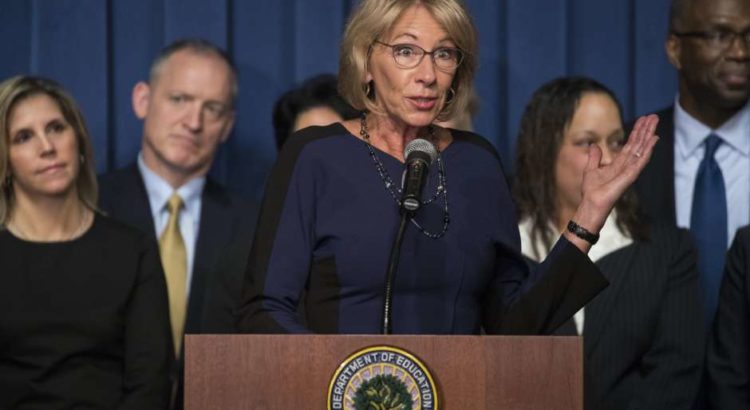
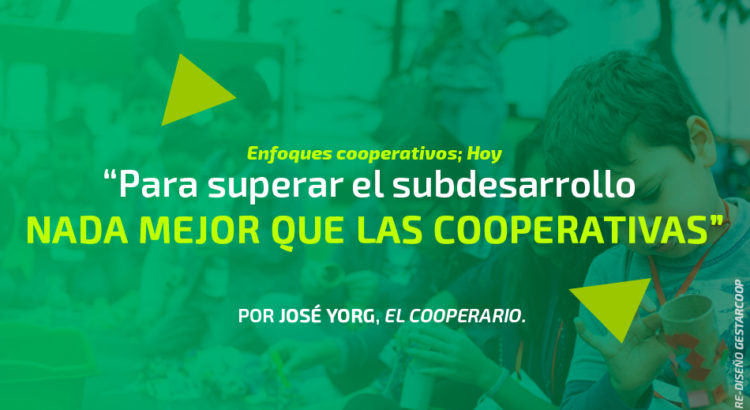
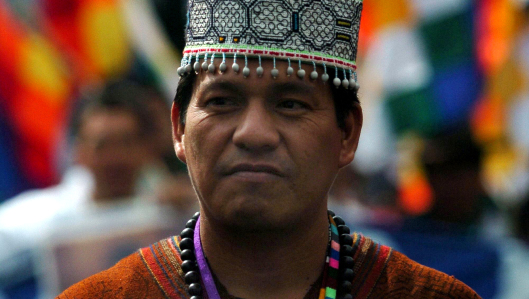
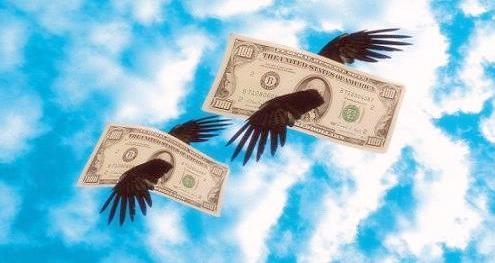
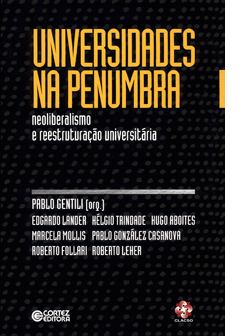
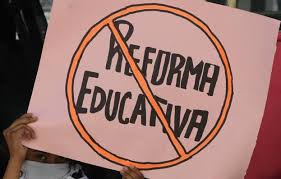
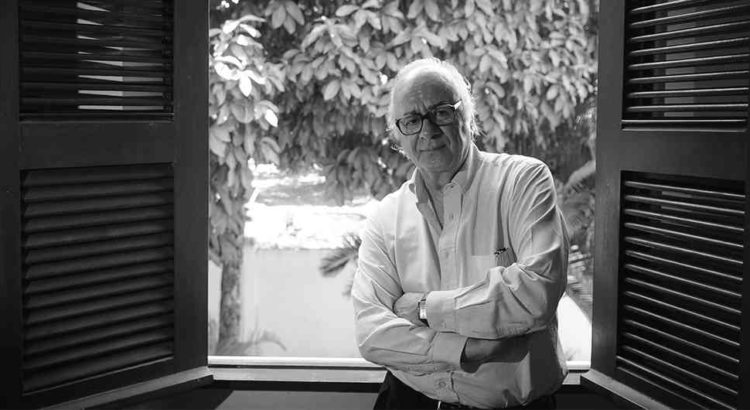






 Users Today : 2
Users Today : 2 Total Users : 35460265
Total Users : 35460265 Views Today : 2
Views Today : 2 Total views : 3418970
Total views : 3418970